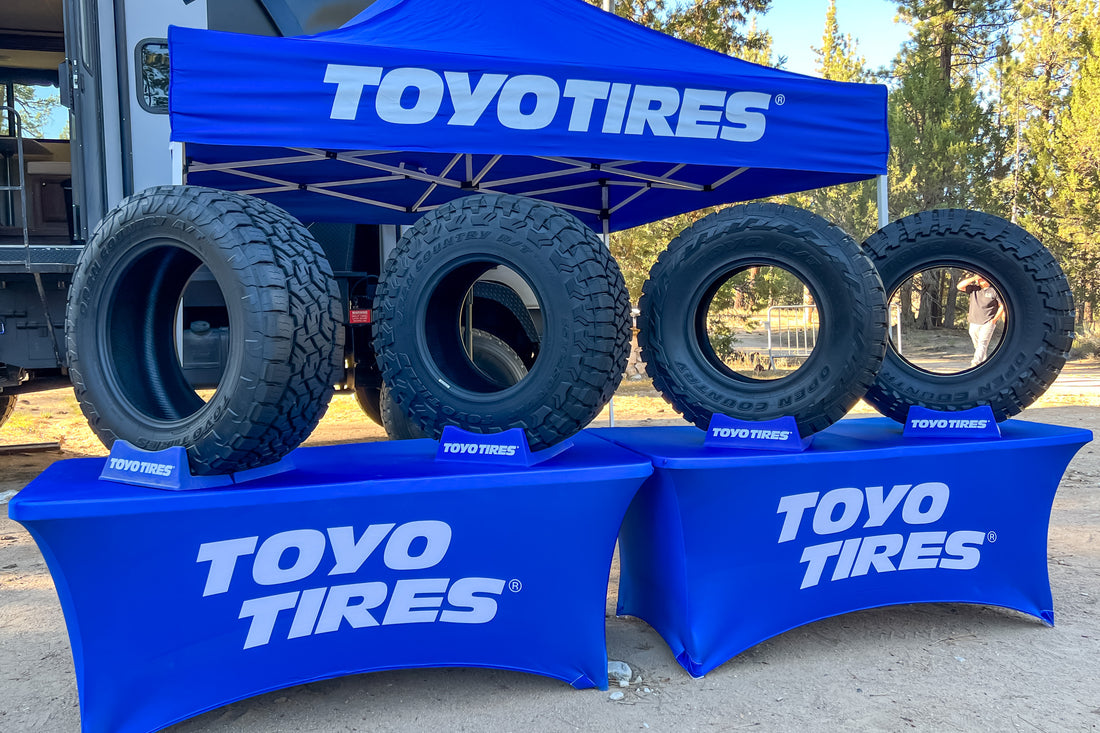
Understanding All-Terrain Tires: Pros and Cons
Share
Why All-Terrain Tires Might Be Right for You
If you're not planning on taking your vehicle off-road, you might think all-terrain (A/T) tires aren't for you. However, their versatility makes them an excellent option for all driving surfaces. All-terrain tires perform well on dry, wet, muddy, or lightly snow-covered roads. Before you decide to put a new set on your vehicle, it's important to understand the unique characteristics of these tires.
Cons of All-Terrain Tires
Every tire type has pros and cons, and all-terrain tires are no exception. Let's start with the drawbacks:
**Reduced Fuel Economy**
All-terrain tires are designed for maximum road grip. They feature a blockier tread than standard road tires, and their softer rubber compound allows them to hold onto rocks and other debris. This increased friction means you'll see a decrease in fuel efficiency compared to regular touring tires, although A/T tires still offer better fuel economy than dedicated off-road tires.
**Faster Tread Wear**
The softer rubber of all-terrain tires can wear down more quickly. The heat and friction generated from road contact erode the tire's outer layer, resulting in a typical 40,000-mile warranty. However, high-end models can last between 50,000 and 70,000 miles.
**Tire Scalloping**
Also known as cupping, this unusual wear pattern occurs when certain tread spots wear down faster than others, leading to a bumpy ride. The sensation is similar to that of worn-out wheel bearings. Aggressive tread designs are more prone to scalloping. Regular maintenance can help mitigate this issue—check for irregular wear and rotate your tires every 6,000 to 8,000 miles.
**Increased Road Noise**
While road noise isn't an issue on rugged trails, it can become tiresome during long highway drives. The open tread pattern of an A/T tire, with its block-like design and wide channels, creates noise as air is forced through them. In contrast, standard road tires feature narrower channels that lead away from the tire's center, providing a quieter ride.
Pros of All-Terrain Tires
Despite these potential downsides, all-terrain tires offer many benefits that often outweigh the negatives:
**Versatility Across Seasons**
All-terrain tires perform well in various weather conditions, making them a great option for areas with four distinct seasons. While they can't replace snow tires in heavy snow, their aggressive tread outperforms summer tires in light snow.
**Enhanced Traction**
The tread pattern of an A/T tire resembles that of an off-road tire, with broader channels that improve traction. This design helps the tire grip rocks, branches, or mud on unpaved trails and enhances traction on city streets and highways.
**Reinforced Sidewalls**
Many all-terrain tires include extra reinforcement in the sidewalls, allowing them to support heavier loads than typical tires. This feature is beneficial for work trucks carrying heavy loads and campers traveling across varied terrain.
While most all-terrain tires are made for trucks, SUVs, and campers, options for four-wheel-drive cars are expanding. If you opt for A/T tires on a car, ensure they fit properly. Due to limited A/T car tire options, you might need new wheels to accommodate the tire's thicker tread and ensure proper clearance. Our team of experts can assist you in finding the right fit for your vehicle.
In conclusion, all-terrain tires are not just for off-roading adventures. They also offer excellent performance for everyday driving in diverse weather conditions.
